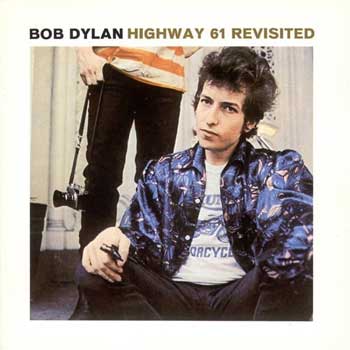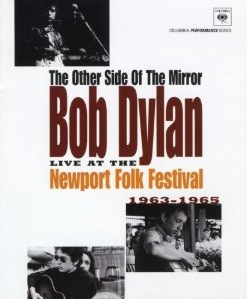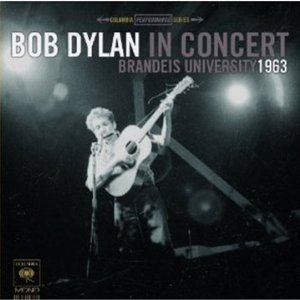An Idiot Wind By Any Other Name
There’s something going on here but you don’t know what it is, do you, Ms. Dowd?
By David McGee
In one of the clumsiest attempted takedowns of a major artist we’ve seen in some time, New York Times columnist Maureen Dowd, writing on April 9, sought to topple Bob Dylan from his perch in rock ‘n’ roll’s pantheon by suggesting (in a column headlined “Blowin’ In the Idiot Wind”) he had finally and irretrievably sold out to the very authorities he used to criticize in song by allowing the Chinese government approval of his set list before playing the Worker’s Gymnasium in Beijing on April 6.
Dowd dumped on Dylan for not raising the issue of the government’s detention of dissident artist-architect Ai Weiwei and for not singing his song “Hurricane,” which would have some relevance to Weiwei’s dilemma of being jailed for a crime he did not commit.
Howled Dowd: “He sang his censored set, took his pile of Communist cash and left.” She even consulted a couple of Dylan eggheads who confirmed her suspicions that Mr. Zimmerman was never really what he had been made out to be, voice of a generation and all that, y’know. (One of those eggheads beat a hasty retreat to the pages of The New Yorkerto amplify his remarks to Dowd and to suggest she simply didn’t get it. “Easy way to pick up a couple of thousand dollars,” said a cynical Dylanologist friend of this maneuver.) So great was Dylan’s trangression, Dowed thundered, that it stands as “a whole new kind of sellout--even worse than Beyoncé, Mariah and Usher collecting millions to croon to Qaddafi’s family, or Elton John raking in a fortune to serenade gay-bashers at Rush Limbaugh’s fourth wedding.”
Uh, not quite. The fairly dim bulbs that are Beyoncé, Mariah and Usher taking seven-figure paychecks to serenade the wife beating son of a terrorist supporting dictator (none of them knew who was signing their paychecks, of course. Not that it would have made a difference if they had, as unlikely as it is that any of them could identify Qaddafi anyway.), and the self-absorbed gay diva that is Elton John collecting his own cool million to play at the wedding of homophobic, misogynist, racist, pill popping bully Rush Limbaugh is another level of greed altogether by so-called artists who really stand for nothing at all other than the glorification of their own tarnished celebrity and their unabashed avariciousness.
It was all so tiresome. For a reality check, I turned to a former Rolling Stone colleague and friend who always seemed to have a better line on all things cultural than anyone else around and a way of stating his position in a manner that set him apart, way apart, from other music writers—make that writers, period—of his time, and boy does he put today’s snarky music press to shame. This would be the late Paul Nelson, who was on to Dylan before most people even knew who he was and over the years became the most reliable authority on Dylan’s music, bar none. (Nelson’s life and work are getting their just due in September with the publication of a long-awaited, diligently researched biography by Kevin Avery, Everything Is An Afterthought: The Life and Writings of Paul Nelson. Full disclosure: Yours truly was among those Avery interviewed. But buy the book anyway.) Paul would be greatly amused by this Dowd-incited kerfuffle, because he would have told us it was such old news. He would have pointed to an article in the February-March 1966 edition of Sing Out! magazine written by its hard-boiled left wing editor Irwin Silber, who seethed over what he perceived to be Dylan’s vacant existentialism as expressed on his album Highway 61 Revisited. “In the final analysis,” Silber wrote, “I do not believe that Dylan’s vision of the world is really where it’s at. What he sees is there. But to stop and go no further is the path to either destruction or compromise. I’m not prepared to buy either.” (To be fair, the New Yorker piece cited above also mentions Silber’s broadside against Dylan.)
Common sense prevailed in that same February-March 1966 issue by way of, yes, Paul Nelson. In a vigorous but measured defense of Dylan and his new album that takes apart Silber’s argument piece by piece and then moves on to an erudite explanation of the virtues of the recording in question, Nelson observes: “”With the advent of Highway 61 Revisited (in my opinion one of the two or three greatest folk music albums ever made), Bob Dylan has exploded, as Leslie Fiedler claims William Burroughs to have “exploded” the novel, the entire city folk music scene into the incredibly rich fields of modern poetry, literature and philosophy; that he did it with his own personal blend of a popular music style, rock-and-roll, is all the more joyful and remarkable. He has, in effect, dragged folk music, perhaps by the nape of the neck, into areas it never dreamed existed, and enriched both it and himself a thousandfold by the journey. Now, for the first time, I think, with this album, we have finally progressed out of Then and into Now. With a Minnesota gypsy leading us, we have finally become contemporary.”
At the end of his review Nelson signs off with typical eloquence: “Let me close with two things. First, Dylan’s own eloquent answer to the social critics: ‘I know there’re some people terrified of the bomb, but there are other people terrified to be seen carrying a Modern Screen magazine.’ And, finally, from novelist John Clellon Holmes: ‘[Dylan] has the authentic mark of the bard on him, and I think it’s safe to say that no one, years hence, will be able to understand just what it was like to live in this time without attending to what this astoundingly gifted young man has already achieved.”
He means you, Mo.
Bob Dylan turns 70 on May 24. To mark the occasion, Columbia/Legacy has released on Blu-ray disc (the DVD was issued in 2007) an essential Dylan documentary: The Other Side of the Mirror: Bob Dylan Live at the Newport Folk Festival, comprised of riveting performance the artist made at Newport between 1963 and 1965. It’s a must-have as is a new CD from Sony Legacy, Bob Dylan in Concert at Brandeis University 1963, a galvanizing performance preserved on tape and stored in the archives of the late, great music writer and Rolling Stone co-founder Ralph J. Gleason. These too are responses to Dylan’s social critics, by virtue of the power of the performances and the intensity of the messages. Read into it what you will, but then that’s what everyone’s been doing since 1962 when the first Bob Dy lan album was released. Why stop now?
Happy birthday, Bob. Live long and prosper.
Bob Dylan in Concert at Brandeis University 1963 is available at www.amazon.com
***
Bob Dylan, ‘It Takes a Lot To Laugh, It Takes a Train To Cry,’ from Highway 61 Revisited
Bob Dylan, ‘Like a Rolling Stone,’ from Highway 61 Revisited
The Four Seasons, ‘Queen Jane Approximately,’ from Dylan’s Highway 61 Revisited. Not the Seasons’ finest hour.
Pete Seeger and Judy Collins perform three Bob Dylan songs on Seeger’s television show, 1966.
The Turtles, Dylan’s ‘It Ain’t Me Baby,’ Hollywood A Go-Go, 1966
From Earl Scruggs: Family & Friends Festival of Music, 1969, ‘You Ain’t Goin’ Nowhere,’ The Byrds, with Roger McGuinn and Clarence White on guitars. Earl Scruggs on banjo, his son Gary Scruggs on guitar.
Founder/Publisher/Editor: David McGee
Contributing Editors: Billy Altman, Laura Fissinger, Christopher Hill, Derk Richardson
Logo Design: John Mendelsohn (www.johnmendelsohn.com)
Website Design: Kieran McGee (www.kieranmcgee.com)
Staff Photographers: Audrey Harrod (Louisville, KY; www.flickr.com/audreyharrod), Alicia Zappier (New York)
E-mail: thebluegrassspecial@gmail.com
Mailing Address: David McGee, 201 W. 85 St.—5B, New York, NY 10024




